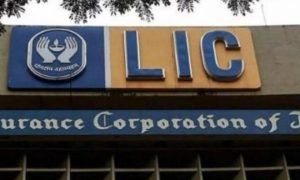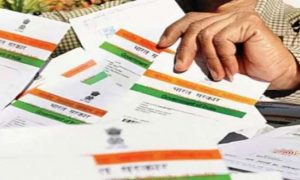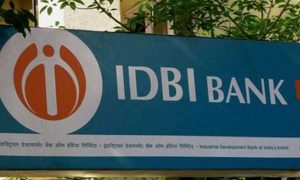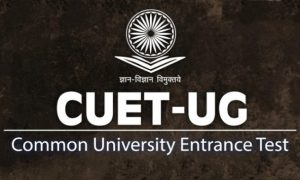Salaried Employees CTC Income Tax Calculation: Take a look at tax rules for reimbursement, conveyance, variable pay, bonus, DA, Gratuity, HRA
Salaried Employees CTC Income Tax Calculation: The CTC of a salaried employee in a private company has various components. These include Basic Salary, House Rent Allowance (HRA), Dearness Allowance, Conveyance Allowance, Entertainment Allowance, medical allowances, Provident Fund, food allowance, etc. The CTC components vary from company to company based on the perquisites or allowances/benefits, it provides to its employees.
Read More : How to get tax benefit despite taking maximum tax exemption under section 80C
According to Dr Suresh Surana, Founder, RSM India, the taxability can be determined depending upon the nature of each component such as allowances, perquisites, etc.
“Some of these components are fully taxable or fully exempt whereas some others enjoy a partial exemption in accordance with the provisions of the Income Tax Act, 1961,” Dr Surana told FE Online.
Dr Surana further said that allowance such as Daily allowance, Uniform allowance, Research allowance are exempt under section 10[14] of income tax Act. Perquisites, on the other hand, are usually taxed in a specific manner as provided by the IT Act.
“For instance, Employee Stock Option Plan (ESOP) – ESOP is an employee benefit plan, allows employee to hold equity in an organisation. The price on which shares are offered to an employee is usually lower than Fair Market Value. Where such ESOP options are provided to the employees, the difference between the two prices would taxable as perquisite u/s 17(2)(vi) of the IT Act,” he said.
In an email interaction with FE Online, Dr Surana shared how various components of CTC are taxed. Take a look:
Basic Pay
Basic pay is always fully taxable.
HRA
If any taxpayer receiving House Rent Allowance (HRA) pays rent for residential accommodation then he can claim exemption under section 10[13A], subject to the lower of the following mentioned limits i.e. Minimum of the following amounts could be claimed as exempt from tax:
(i) Actual amount received
(ii) 50% of salary if living in metro cities (i.e. Mumbai, Delhi, Chennai and Kolkata) and 40% of salary in other cases.
(iii) Rent paid in excess of 10% of salary
For the purpose of computation of the exempt HRA amount, Salary would mean Basic salary plus Dearness allowance [if it forms part of retirement benefits] and commission received on the basis of turnover.
If the taxpayer receiving HRA doesn’t pay any rent, the whole of the amount of HRA will be taxable.
Variable Pay
Variable pay is the portion of compensation usually determined by employee performance and is is fully taxable.
Reimbursement (Conveyance, Books & Newspapers/Periodicals, Mobile, Entertainment etc.)
As per section 10(14) of the IT Act, allowances granted to employees for official purpose are exempt from tax, provided such expenses are actually incurred by employees. Employee should have necessary bills and vouchers as an evidence to claim exemption.
Read More : How to get tax benefit despite taking maximum tax exemption under section 80C
Therefore conveyance allowance is exempt to the extent of expenditure incurred. Similarly, reimbursement with respect to books/newspapers and periodicals could be claimed as exemption u/s 10(14) whereas reimbursement for mobile phone expenses is exempt in accordance with Rule 3(7)(ix) of the IT Rules.
Entertainment allowance, on the other hand, is fully taxable in case of private employees. If such entertainment allowance is provided to employees to reimburse the expenses on the hospitality of customers of the business i.e. for business purpose, the same may be claimed as exemption u/s 10(14) of the IT Act.
Leave travel allowance (LTA)
For the purpose of claiming exemption with respect to Leave Travel Allowance/ Concession u/s 10(5), the taxpayer needs to fulfill certain conditions as follows:
i. Actual journey is undertaken by the taxpayer
ii. Only domestic travels is considered for the purpose of claiming such exemption
iii. Exemption available for employee alone or with his family, family includes spouse, children ,dependent parents, brothers and sisters of the employee. However, exemption is not available for more than 2 children born after 1 October 1998. Further in cases of multiple births on second occasion after
having one child is not affected by this restriction
iv. LTA exemption is allowed maximum 2 times i.e. in respect of 2 journeys in a block of 4 calendar years (2022-2025). The quantum of exemption would vary as per the mode of journey. For instance in case of Air Travel, lower of actual expenses incurred or economy class fare would be allowed.
Bonus
Bonus is fully taxable
Gratuity
Gratuity, if any, received during the employment is fully taxable. However, Gratuity received at the time of retirement would undergo tax treatment depending on whether the employer is covered under Payment of gratuity Act or not.
If the employer is covered under Payment of Gratuity Act, then the least of following is exempt u/s 10(10) of the IT Act:
i. Actual amount received
ii. Rs. 20,00,000
iii. 15 days salary based on salary last drawn for every completed year of service or part thereof in excess of 6 months (i.e. 15/26 * Salary p.m. * No. of years of completion of service)
For the purpose of aforementioned computation, salary would mean Basic salary p.m. plus Dearness Allowance.
If the employer is not covered under Payment of Gratuity Act, then the least of following is exempt
i. Actual amount received
ii. Rs. 20,00,000
iii. Half month’s salary for each completed year of service. (i.e. ½ * Average Salary p.m. * No. of years of completion of service) While calculating completed years, any fraction of a year shall be ignored.
“For the purpose of aforementioned computation, Average Salary p.m. would mean Average Basic Salary of last 10 months plus Dearness allowance [if it forms part of retirement benefits] of the last 10 months and Average Commission received on the basis of turnover of the last 10 months,” Dr Surana said.



































